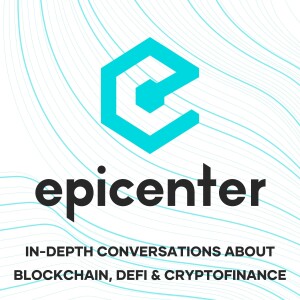
Polkadot is a unique protocol connecting multiple purpose-built blockchains into one scalable network. It's using blockchain technology to make way for new markets and future decentralized economies and has many stand out features. It's a sharded multichain network enabling many transactions on several chains in parallel. It offers interoperability and cross-chain communication. Communities on Polkadot govern their own network, and hold a stake in the future of Polkadot’s network governance as a whole. It also enables forkless upgrades, allowing blockchains to evolve and adapt easily. Over 100 projects have been or are currently being built for the Polkadot ecosystem, in a wide range of services and systems.
After being in the development stage for 3 years, Polkadot was launched earlier this year. It's the first project by Web3 Foundation, and Parity are behind the development. Dieter Fishbein, Head of Ecosystem Development at Web3 Foundation, and Joe Petrowski, Research Analyst at Parity Technologies, share an in depth overview on the economics and incentives behind the protocol.
Polkadot is designed to take back our digital sovereignty from powerful third-parties who currently control the web. It promises to take blockchain technology to the next level, and we believe it will do just that.
Topics covered in this episode:
Dieter and Joe’s backgrounds and how they got into the crypto spaceThe Polkadot visionThe key components of the Polkadot protocolKusama - Polkadot's cousinScalability, Security, and InteroperabilityThe stages of the Polkadot launch and what is coming nextBuilding with SubstrateThe parachains being developedLeasing parachain slotsRunning validators on PolkadotEpisode links:
Polkadot WebsiteKusama WebsiteThe Polkadot launchPolkadot TwitterDieter Fishbein TwitterJoe Petrowski TwitterThis episode is hosted by Brian Fabian Crain & Sunny Aggarwal. Show notes and listening options: epicenter.tv/347
More Episodes
Anthony Lusardi: Ethereum Classic Cooperative – Accelerating the Growth of ETC
 2018-07-17
2018-07-17
Evan Shapiro & Izaak Meckler: Coda – A Succinct Blockchain
 2018-07-12
2018-07-12
Neha Narula: MIT’s Digital Currency Initiative – A Research-Driven Approach to Blockchain
 2018-07-04
2018-07-04
Eric Larchevêque: Ledger – How to Build an Industry-Leading Cryptocurrency Security Company
 2018-06-27
2018-06-27
Pamela Morgan: Cryptoasset Inheritance Planning
 2018-06-21
2018-06-21
Grigore Rosu: The K Framework – A Framework to Formally Define All Programming Languages
 2018-06-12
2018-06-12
Amrit Kumar & Dr.Ilya Sergey: Scilla – A Formal Verification Oriented Contract Language
 2018-06-06
2018-06-06
Matan Field: DAOstack – An Operating System for Collective Intelligence
 2018-05-31
2018-05-31
Luis Cuende: Aragon – Decentralized Governance and the Fight for Freedom
 2018-05-24
2018-05-24
Changpeng Zhao: The Meteoric Rise of Crypto Exchange Binance
 2018-05-16
2018-05-16
Charles Hoskinson: Cardano – A Third Generation Smart Contract Blockchain
 2018-05-08
2018-05-08
Humayun Sheikh & Toby Simpson: Fetch.ai – an intelligent learning blockchain network
 2018-05-02
2018-05-02
Karl Floersch: Plasma Cash and the Ethereum Roadmap
 2018-04-24
2018-04-24
Ajay Prakash & Gavin Brennen: Qubit Protocol – Quantum Computing & The Coming Threat to Crypto
 2018-04-17
2018-04-17
Loong Wang & Taiyang Zhang: Republic Protocol – A Decentralized & Trustless Crypto Dark Pool
 2018-04-11
2018-04-11
Ryan John King: FOAM – A Geospatial Proof of Location Protocol for Blockchains and Dapps
 2018-04-04
2018-04-04
Corey Todaro & John Bass: Hashed Health – Rebooting The Healthcare Industry
 2018-03-29
2018-03-29
Peter Van Valkenburgh: Where US Cryptocurrency Regulation is Heading
 2018-03-21
2018-03-21
Bob Summerwill: Sweetbridge – Rewriting the Operating System for the World Economy
 2018-03-18
2018-03-18
Anson Zeall: Blockchain in Singapore and South East Asia
 2018-03-08
2018-03-08
Create your
podcast in
minutes
- Full-featured podcast site
- Unlimited storage and bandwidth
- Comprehensive podcast stats
- Distribute to Apple Podcasts, Spotify, and more
- Make money with your podcast
It is Free
You may also like

The Business Of


U.S Property Podcast


Aligned Money Show


Dubai Property Podcast


The Ramsey Show


The Clark Howard Podcast

- Privacy Policy
- Cookie Policy
- Terms of Use
- Consent Preferences
- Copyright © 2015-2024 Podbean.com



 iOS
iOS Android
Android